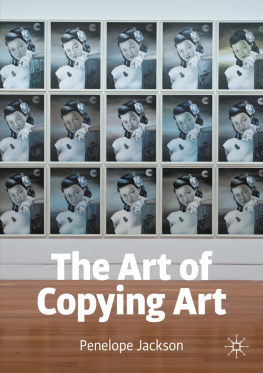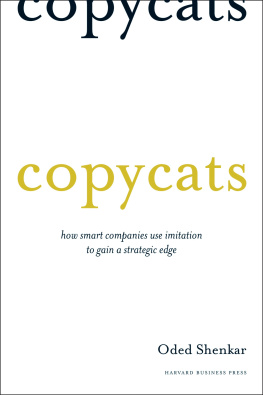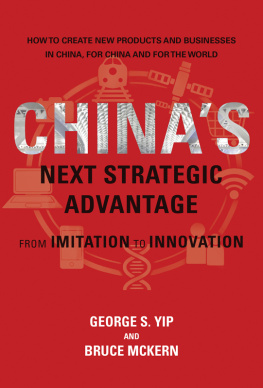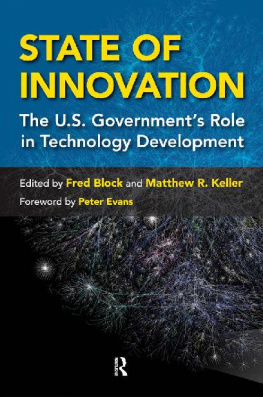Raustiala Kal - The knockoff economy : how imitation sparks innovation
Here you can read online Raustiala Kal - The knockoff economy : how imitation sparks innovation full text of the book (entire story) in english for free. Download pdf and epub, get meaning, cover and reviews about this ebook. City: New York, Oxford U.K., United States, year: 2012, publisher: Oxford University Press, USA, genre: Romance novel. Description of the work, (preface) as well as reviews are available. Best literature library LitArk.com created for fans of good reading and offers a wide selection of genres:
Romance novel
Science fiction
Adventure
Detective
Science
History
Home and family
Prose
Art
Politics
Computer
Non-fiction
Religion
Business
Children
Humor
Choose a favorite category and find really read worthwhile books. Enjoy immersion in the world of imagination, feel the emotions of the characters or learn something new for yourself, make an fascinating discovery.

- Book:The knockoff economy : how imitation sparks innovation
- Author:
- Publisher:Oxford University Press, USA
- Genre:
- Year:2012
- City:New York, Oxford U.K., United States
- Rating:4 / 5
- Favourites:Add to favourites
- Your mark:
The knockoff economy : how imitation sparks innovation: summary, description and annotation
We offer to read an annotation, description, summary or preface (depends on what the author of the book "The knockoff economy : how imitation sparks innovation" wrote himself). If you haven't found the necessary information about the book — write in the comments, we will try to find it.
The Knockoff Economy approaches the question of incentives and innovation in a wholly new way--by exploring creative fields where copying is generally legal, such as fashion, food, and even professional football. By uncovering these important but rarely studied industries, Raustiala and Sprigman reveal a nuanced and fascinating relationship between imitation and innovation. In some creative fields, copying is kept in check through informal industry norms enforced by private sanctions. In others, the freedom to copy actually promotes creativity. High fashion gave rise to the very term knockoff, yet the freedom to imitate great designs only makes the fashion cycle run faster--and forces the fashion industry to be even more creative.
Raustiala and Sprigman carry their analysis from food to font design to football plays to finance, examining how and why each of these vibrant industries remains innovative even when imitation is common. There is an important thread that ties all these instances together--successful creative industries can evolve to the point where they become inoculated against--and even profit from--a world of free and easy copying. And there are important lessons here for copyright-focused industries, like music and film, that have struggled as digital technologies have made copying increasingly widespread and difficult to stop.
Raustiala and Sprigmans arguments have been making headlines in The New Yorker, the New York Times, the Financial Times, the Boston Globe, Le Monde, and at the Freakonomics blog, where they are regular contributors. By looking where few had looked before--at markets that fall outside normal IP law--The Knockoff Economy opens up fascinating creative worlds. And it demonstrates that not only is a great deal of innovation possible without intellectual property, but that intellectual propertys absence is sometimes better for innovation
Raustiala Kal: author's other books
Who wrote The knockoff economy : how imitation sparks innovation? Find out the surname, the name of the author of the book and a list of all author's works by series.








